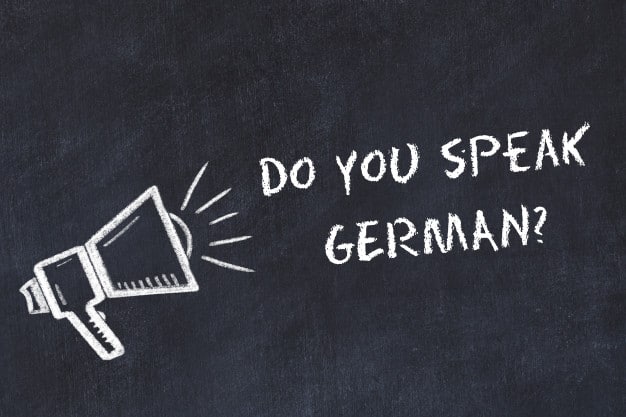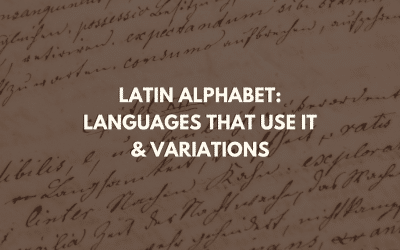The German language is notorious for having long and confusing words. Besides its multiple endings, cases, complex sentence structures, there is one feature that can be both fascinating and absolutely baffling at the same time.
Indeed, in German, it’s very common to put a few words together to form a longer one, which usually can be translated even as a whole sentence in English! So heres our list of 10 Untranslatable German Words.
Compound words are present in every language, but they are quite extreme in German. As Mark Twain put it “Some German words are so long that they have a perspective.”
For instance, Donaudampfschiffahrtsgesellschaftskapitän, translated as “Danube steamship company captain”, has 42 letters and is compounded of 6 words.
Not impressed?
Well, “Donaudampfschiffahrtselektrizitätenhauptbetriebswerkbauunterbeamtengesellschaft” means “an association of subordinate officials of the head office management of the Danube steamboat electrical services”, which, funny enough, was the name of a pre-war club in Vienna, Austria1. This word has only 79 letters.
In the following blog, we will have a look at 10 compound German words, which are not as extreme as these above but are basically untranslatable. Have fun!
10 Untranslatable German Words and Phrases
1. Kehrwoche
Communal living is very popular in Germany and Austria, especially among university students, who can’t afford to rent a place just for themselves. However, besides sharing the place, people living together share the chores as well.
In fact, this is exactly what Kehrwoche, literally translated as ‘sweeping week’, refers to – dividing the chores such as cleaning the common areas in the apartment among the tenants. In this way, everyone knows when exactly it is their turn to do the household chores and everything is in order!
2. Fingerspitzengefühl
This word can be literary translated as a fingertip feeling which only subtly implies its real meaning. It is usually used to describe someone who has a good feel of a situation and is good at dealing with people and their needs; they are aware of the constantly changing opportunities and know what would be the next best move. It also suggests calmness and precision.
For instance, we could say “a politician has the Fingerspitzengefühl” because he knows how to manage tricky situations and to get his way around issues.
3. Waldeinsamkeit
Literary translated as forest loneliness, Waldeneinsamkeit refers to the feeling of peacefulness while being on your own in the forest.
In fact, the forest has always had a place in German culture. Due to its territory, all German-speaking countries have huge forests. Goethe, Mozart, Martin Heidegger, the famous existential philosophers – the forest was a source of inspiration for all of them.
Many fairy tales are set in the German forests – Hansel and Gretel, Rumpelstiltskin, Snow White, and Little Red Riding Hood to name a few.
What’s more, during German Romanticism nature was the main theme in literature and all arts in general.
Nowadays this word can be used to say that you have escaped the stress and pressure of your daily life by going to the woods.
Thus, you might hear a German say that they have enjoyed the Waldeneinsamkeit during the weekend.
Also Read: German eCommerce: A Guide to Translation and Localization
4. Torschlusspanik
The panic of the closing door is a great metaphor for somebody’s love life. It describes the panic of realizing that you are getting older and thus, your chances for doing something you want are getting slimmer.
For instance, your 40-year-old friend might have the Torschlusspanik because they feel like they will never find a partner.
In fact, the feeling of Torschlusspanik is usually triggered by the so-called mid-life crisis.
However, in Medieval times, the panic of the closing door word had a more literal meaning. During those days, peasants were working outside of the town’s defensive walls. This word referred to the panic that overcame the peasants when there was an attack on the village.
Once they had learned about an impending danger, they would hurry to the gate before it’s closed. Otherwise, they would not survive.
5. Geborgenheit
This is one of the nicest words that fall into the untranslatable german words list! Geborgenheit is used to refer to the ideal state where one feels cozy, warm, safe, and comfortable.
You could say you feel the Geborgenheit when you are lying on the sofa snuggled with your significant other under a soft, cosy blanket and the fire is cracking near you.
It is a powerful and complex word and as you can see, it is hard to describe its meaning with just one word!
6. Geschmacksverirrung
This word can be translated simply as a lack of taste. However, Geschmacksverirrung is not as innocent as it seems. There is a certain sense of superiority to it since it implies that somebody does not just lack good taste but their preferences are wrong.
What’s more, this negative is strengthened by the fact that Geschmacksverirrung usually collocates with the German verb Leiden, meaning to suffer.
7. Sturmfrei
This word can be literary translated as storm-free, which could be seen as a metaphorical meaning since it’s used to refer to having one’s house for themselves since the parents or flatmates are away for a while.
For instance, your parents have gone to the woods to enjoy the Waldeinsamkeit during the weekend and you can invite your friends around because you are sturmfrei.
Also Read: Things to Consider When Localizing for the German Market
8. Dreikäsehoch
This word means three pieces of cheese high, but indeed has nothing to do with cheese or food. It is used to refer to a kid that is as tall as three cheese pieces on top of each other and is usually used sarcastically.
For instance, imagine you are at a family meeting and one of the kids gets a little too wild so someone call him a cheeky Dreikäsehoch.
9. Erklärungsnot
This one could be quite relatable. Erklärungsnot literary means explanation misery and to some extent it is exactly that!
We all have been in the situation when you didn’t do your homework because you spent the previous day playing and the teacher asks you to tell them you’ve come unprepared for the lesson. So you have to come up with a plausible explanation right away.
Well, this is Erklärungsnot – the situation when you have to quickly come up with some excuse to avoid complications.
10. Luftschloss
We all can behave as Luftschloss from time to time. It could be generally translated as a daydreamer, however, it has a rather negative connotation to it since it refers to someone who has their head in the clouds for so long that has, more or less, lost their sense of the real world around them and thus, needs a reality check as soon as possible.
This list is in no way exhaustive! The German language is full of untranslatable words and phrases. Although this sounds like a real challenge for German language learners, if we look at it from a rather positive perspective, we’ll see that it is actually awesome. It’s amazing to be able to express a very particular feeling like Waldeinsamkeit or describe a certain situation such as sturmfrei with a single word.
Without a doubt, German is a hard language but I think we all can agree that such words add a rather fun and charming side to it.
Are you trying to localize for the German market? Get in touch with us and we can help you.










